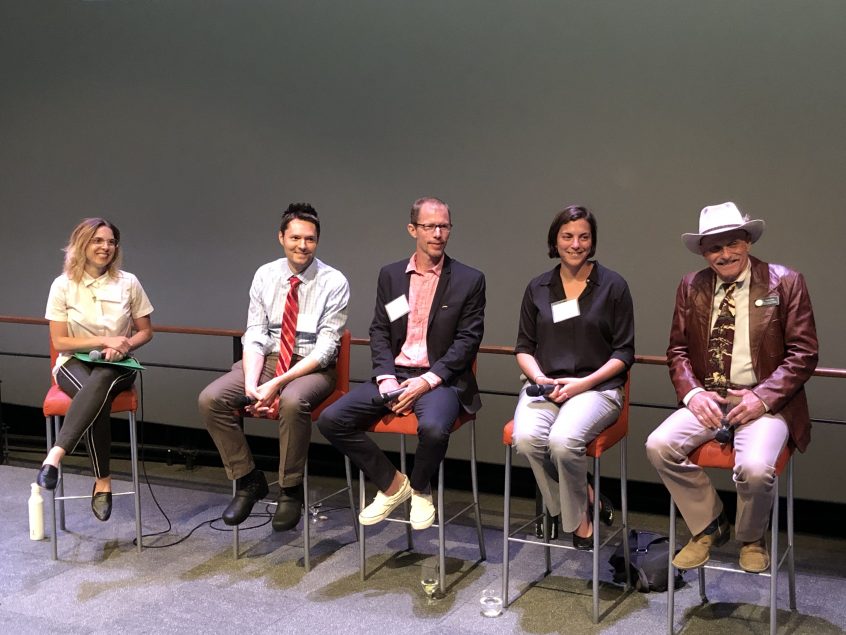Wildfires have been synonymous with Eastern Washington summers for quite some time, said Rep. Tom Dent (R-Moses Lake) during a panel discussion last week at the Pacific Science Center (PacSci).
“I can’t remember how long I’ve lived with smoke every summer,” Dent said. “It’s been probably about 30 years.”
It was only a few years back that Washington residents thought of forest fires as a concern unique to communities east of the Cascades. But the 2017 Jolly Mountain Fire changed that, said participants in the PacSci forum focusing on wildfire and its impacts on Washington state.
The lightning strike-caused fire threatened property, recreational areas, livestock and lead to the evacuation of more than 150 homes in Kittitas County. Smoke and ash also spread throughout the state, impacting air quality in Seattle, Yakima, Spokane, Tacoma and Everett.
The two consecutive smoky summers, a reported 50 Western Washington wildfires this early spring and predictions of more forest fires this year suggests that smoke will continue to be a part of our summers unless changes are made, all of the PacSci speakers said.
“If this summer is like the previous two, there is more smoke to come,” said panelist and artist Ted Youngs.
Along with the smoke and haze that can mar summer skies, many throughout the state also can experience serious health conditions, said Dr. Cora Sack, a panelist and pulmonologist at the University of Washington. Poor air quality from wildfire smoke can impact respiratory and cardiovascular health. People with medical conditions, outdoor workers and wildland firefighters, are particularly susceptible to wildfire smoke, Sack added.
There is hope and a path forward, the speakers said. The heightened awareness of wildfire and a greater appreciation for forest management means increased attention on smart forest practices and support for proven-effective strategies like controlled burns and fuel breaks to reduce the spread of wildland blazes. It also has created an opportunity for lawmakers representing both sides of the aisle – and both sides of the state – to work together toward decreasing the severity of wildfires and promoting policies that ensure healthy, resilient forests.
The ultimate goal, Dent said, is to remove the word “catastrophic” from wildfire so future blazes – both naturally-occurring and manmade – won’t be so devastating for all Washington residents.
Said Dent:
Sometimes it’s very hard to move legislation forward when it doesn’t affect everybody. Last year, we saw a great fire year from my perspective because we blew all of our smoke over here (Western Washington) and we engaged you guys. And what you’ve done is you’ve engaged your lawmakers, and they’re starting to understand what we’ve been living with. And so now we’re starting to move forward.
